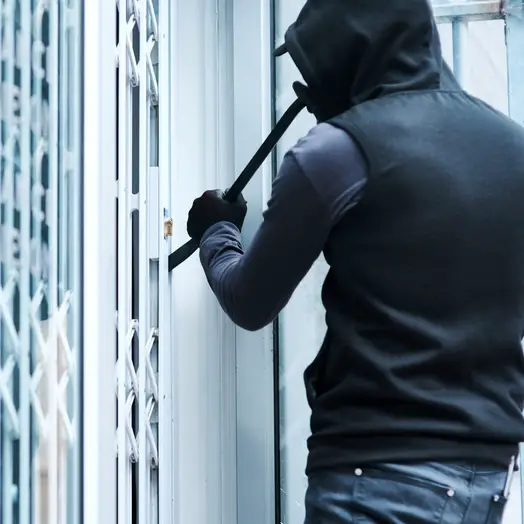Home security isn’t just about locks and alarms. In fact, some of your most innocent daily habits might be sending subtle signals to potential burglars that your house is an easy target. A recent study found that 34% of burglars enter through the front door, suggesting that many break-ins could be prevented by changing simple behaviors. Here are seven seemingly harmless habits that could be putting your home at risk.
Maintaining an overly manicured lawn while away

While a well-kept lawn might seem like a sign of responsible homeownership, an immaculately maintained yard during an extended absence can be a red flag. Professional security experts note that lawns that look too perfect, especially when compared to slight variations in neighboring properties, can signal that a professional service is maintaining an empty house.
The ideal approach is to maintain a lived-in look. Ask a trusted neighbor to mow at slightly irregular intervals, matching the natural pattern of occupied homes. This creates the appearance of regular activity without the telltale signs of a maintenance service.
Following the same schedule every day
Security statistics show that burglars often monitor potential targets for several days to learn their routines. If you leave and return home at exactly the same times each day, you’re making it easy for someone to predict when your house will be empty.
Consider mixing up your schedule occasionally. Work from home some days, vary your gym routine, or take different routes to work. Small changes in your daily patterns can make your schedule less predictable and your home a less attractive target.
Hiding a spare key in common spots

That fake rock by your front door isn’t fooling anyone. Security professionals report that experienced burglars know all the common hiding spots: under doormats, above door frames, in planters, and yes, those obvious fake rocks.
Instead of hiding physical keys, consider installing a smart lock system with temporary codes for trusted visitors. If you must keep a spare key, leave it with a trusted neighbor rather than hiding it outside.
Keeping your blinds consistently positioned
Always leaving your blinds in the same position, whether fully open or closed, can signal when you’re away. Research indicates that burglars look for these patterns as signs of vacancy.
Use automated smart blinds or ask a house-sitter to adjust your blinds periodically. This creates natural variation that mimics normal home occupation patterns and makes it harder for observers to detect when you’re away.
Installing privacy hedges around your property

Those tall privacy hedges might keep nosy neighbors out, but they also provide excellent cover for burglars. Dense landscaping near windows and doors creates blind spots where intruders can work undetected.
Maintain hedges and bushes at three feet or lower near windows and entrances. This height provides some privacy while maintaining visibility. Consider thorny plants near ground-floor windows as a natural deterrent.
Using motion lights incorrectly
Simply having motion-activated lights isn’t enough – placement matters. Many homeowners install them too high or with too narrow a coverage area, creating shadows and blind spots that savvy burglars can exploit.
Position motion lights between 6-10 feet high, ensuring overlapping coverage areas. Include both instant-on lights for deterrence and subtle ambient lighting that makes it harder for intruders to hide in shadows.
Keeping valuables in predictable places
Security experts reveal that burglars head straight for master bedrooms and home offices, where valuables are typically stored. Keeping all your valuable items in these obvious locations makes them easy targets.
Consider using a decoy jewelry box while keeping valuables in an unexpected location. Install a safe, but avoid master bedrooms or offices. Unexpected spots like the laundry room or kitchen pantry can be surprisingly effective hiding places.
Remember, home security isn’t just about installing the latest technology – it’s about developing smart habits that don’t advertise your vulnerabilities. By avoiding these common mistakes and implementing simple changes, you can significantly reduce your home’s appeal to potential burglars without compromising your daily comfort.

